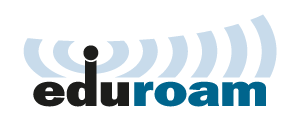
Mobility and roaming within the eduroam project are based on the fact that the user's access information (name and password or certificate) is transferred to the organization that is the user's home organization – the user has his/her account there - via the Authentication and Authorization Infrastructure (AAI). This organization then decides, on the basis of the user information, whether the user will be granted an access to the network. Due to it it is possible to identify each access to the network, or identify and verify the user trying to connect to the network. Relations between organizations cooperating within the eduroam project, rights and duties of the users and network administrators of particular organizations are defined in a Roaming Policy document.
Networks incorporated into the eduroam project are most often implemented as wireless networks (WiFi) in compliance with the 802.11a/b/g/n standards. Also connection to common ethernet network (RJ45 plugs, 10/100Mbit/s) can be used. Currently the 802.1x standard with WPA/TKIP or WPA2/AES authentication is used in the eduroam project.
In wireless networks (WiFi) within the eduroam project the standardized eduroam network identifier (SSID) is used. Most connected organizations publish the information necessary for network connection. The list of connected organizations within the Czech NREN is available here. The description of the network connection at Charles University in Prague is here.
In order to be allowed to use the roaming services the user needs to create an account at the organization that participates in the eduroam project and is connected to AAI. For more detailed information for staff and students of Charles University see the access data page.
Eduroam name and logo are protected by TERENA company registered trademark.